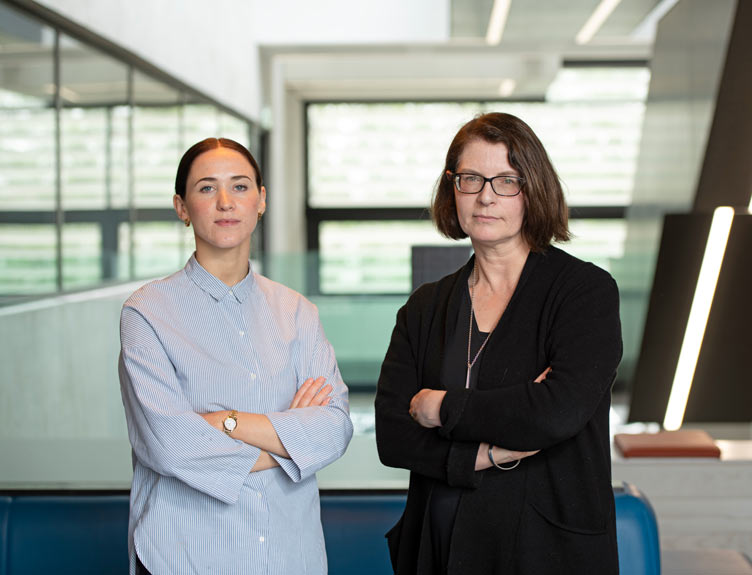New study looks at developmental milestones of 'pandemic babies' at two years
A study involving RCSI researchers has found that a small proportion of babies born early in the COVID-19 pandemic had gaps in their communication skills at age two and could benefit from additional support.
Published in Archives of Disease in Childhood, the research builds on findings from a study last year on ‘pandemic babies’ at 12 months of age. The new study looks at communication and other developmental milestones in two-year olds who were born in the first months of the COVID-19 and lived through lockdown as babies, and compared them with results for two-year olds who were born before the pandemic began.
Reassuringly, it found no differences between pandemic-born and pre-pandemic babies in most other aspects of development, and no differences in behavioural outcomes, at the age of two years. However the new findings about communication point to the need for continued screening and the importance of resources being made available to support children who may need them in the future.
The CORAL (Impact of Corona Virus Pandemic on Allergic and Autoimmune Dysregulation in Infants Born During Lockdown) study looks at what life was like for babies born in the first three months of the COVID-19 pandemic. The project involves researchers from RCSI, Children’s Health Ireland (CHI) and University College Cork.
Small social circles
Study co-author Dr Susan Byrne, RCSI Department of Paediatrics and FutureNeuro SFI Centre, said: “Lockdown presented babies with a very different environment, where they were less likely to interact with people outside of the immediate family group.
“In the CORAL study, we had previously shown that pandemic-born babies in Ireland had slightly reduced social communication skills relative to their counterparts who had not experienced lockdown as babies. We can’t say exactly why that was but we did show that these babies had very small social circles. In the first year of life a quarter of the pandemic-born babies in the CORAL group did not meet another child of their own age. For this new study, we followed up with the same group of pandemic-born babies when they had just turned two.”
Parents in the CORAL study filled out standard questionnaires and checklists about their child’s development and milestones. The researchers then compared the CORAL results with answers recorded in a previous study, BASELINE, which tracked the development of babies born Ireland before COVID-19.
Communication differences
Their findings showed that by the age of two, parents of both pandemic and pre-pandemic babies reported similar results in areas such as movement, personal and social interactions and solving problems. A small but measurable difference in answers about communication between the two groups remained, however, with a larger proportion of pandemic-born babies scoring below standardised cut-offs for developmental concern in the communication domain (11.9%) when compared with babies who had been born before the pandemic (5.4%).
“We were able to demonstrate that most of their developmental and behavioural outcomes at this age were comparable to pre-pandemic born babies, except for mild differences in communication,” said Dr Byrne, who is a researcher with FutureNeuro and consultant paediatric neurologist in Children’s Health Ireland at Crumlin. “The majority of pandemic-born babies had entirely normal communication scores, but in the overall group there was a statistically relevant higher proportion at risk of developmental concerns compared to the pre-pandemic group.“
Next steps
These findings are the first to report this mild communication deficit in pandemic-born babies in Ireland, according to study co-author Professor Johnathan Hourihane, who noted the need for continued monitoring and support, particularly as the children approach school-going age.
“Our findings highlight the need to continue national developmental screening programmes for all children, and provide the appropriate resources for early intervention services.” The CORAL study is supported by the Temple Street Hospital Foundation in Dublin, Ireland and the Clemens von Pirquet Foundation in Geneva, Switzerland.



